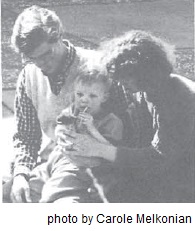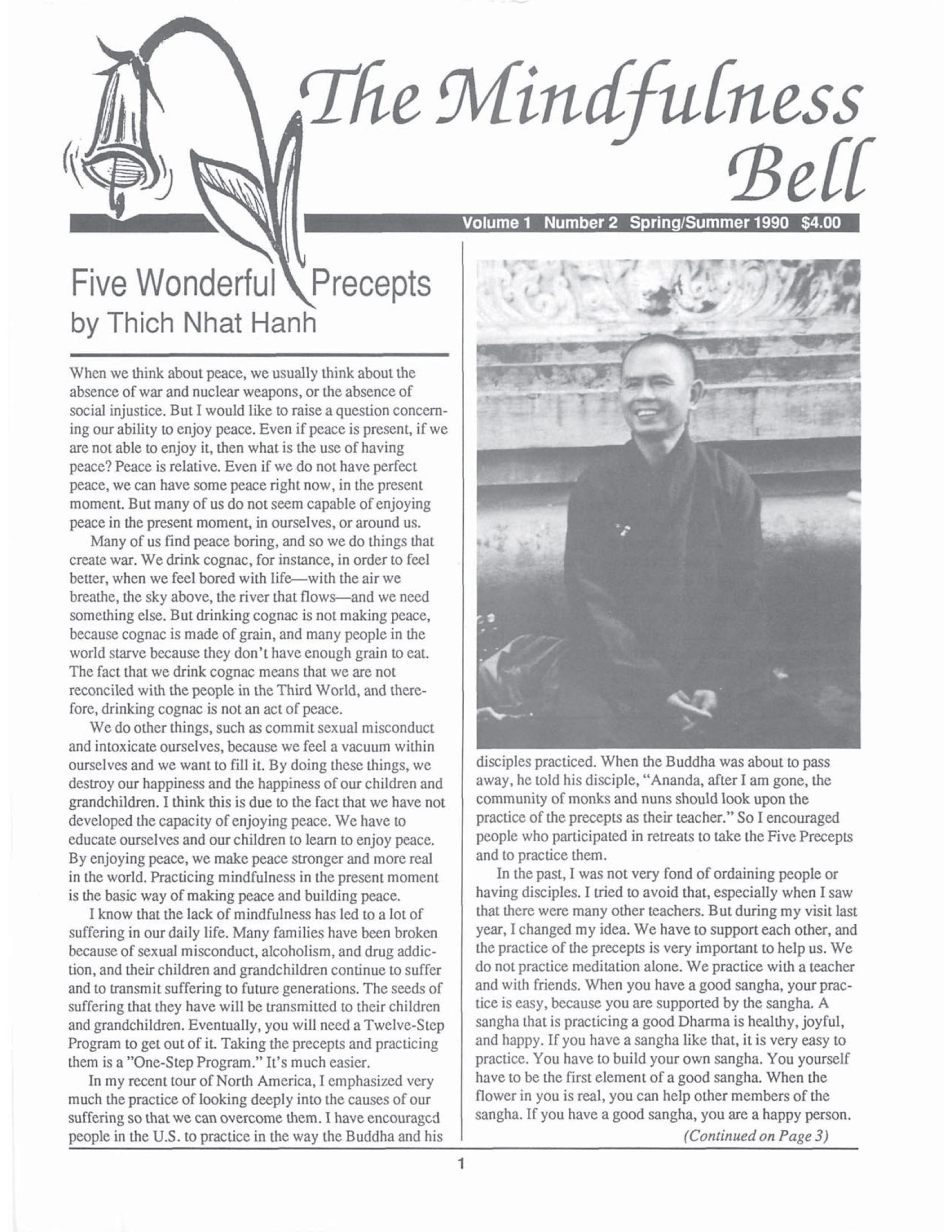During an afternoon of walking meditation in a beautiful park in California, I paused beneath a broad-leaved tree with a massive trunk and breathed and smiled. I remembered other parks in another town where people can be found beneath the trees; sleeping people, ragamuffin people, homeless people. I realized that these people have taken their own vow of poverty, that they live very much in the present moment, and that they carry a large portion of our society’s hopelessness and shame in silence.
During an afternoon of walking meditation in a beautiful park in California, I paused beneath a broad-leaved tree with a massive trunk and breathed and smiled. I remembered other parks in another town where people can be found beneath the trees; sleeping people, ragamuffin people, homeless people. I realized that these people have taken their own vow of poverty, that they live very much in the present moment, and that they carry a large portion of our society's hopelessness and shame in silence. I resolved to sit with these Buddhas, to learn what their practice has taught them, and to fill their begging bowls however I could. I soon found many masters I could study with. I found a park in Oakland called "Old Man's Park," and I went there to sit and walk, to breathe and smile, and to offer food and money to the many homeless people who always gather there. I told them I had participated in the war in Vietnam and that I felt there was innocent blood on my hands, and I asked their guidance for my troubled heart. What should I do? How could heal?
One man with wild hair and fiery, red eyes told me he was Jesus Christ and that he forgave me. His eyes penetrated deep inside me, and I was a little frightened but also touched at the intensity and the sincerity of his forgiveness. I felt forgiven by that man.
Another man--a smelly, bearded, Italian man given to loud recitations of "Hail Mary's" at a bus stop bench-told me I needed to forgive myself. He said he could tell by looking at me that I was a gentle soul and that any wrongdoing I might have committed was most definitely an act of desperation. He invited me to recite with him, which I did, "Hail Mary, Mother of God..."
A third man, I'd been told was called Moses, seldom spoke, but stared at me for several minutes. His face was an amazing piece of sculpture--chiseled black angles and curves highlighted with tufts of curly hair. Even the bubbly patch of silver spittle in his goatee was perfectly placed and formed an exact triangle. He said to me only four words, "I commanded both Armies." I bowed deeply and walked away, saying softly to myself, "So did we all."
I decided it would be a good idea to invite some others to meet my new teachers, so I organized a party and invited a number of friends to come and bring food and flowers for more than themselves. As we were preparing plates for our dinner, I asked that each person make up a second plate for someone not with us who was hungry. I asked that as we ate, we spend some time thinking of those without food and how we can offer them our support and love. After our meal, I invited everyone at the party to come with me to the park to help hand out the extra food. We had twenty-eight plates filled with wonderful food and four big bouquets of flowers. Most of my friends didn't want to go. Only two black teenagers and a homeless man who had shown up at my house that morning looking for yardwork volunteered.
As we drove to the park, there was quite a bit of discussion about how to hand out the food. The teenagers were concerned that a crowd would form and that things would get ugly. I said, with more conviction than I actually felt, that we would be all right, that we had nothing to fear. The teenagers next asked why we were bringing flowers. They felt that what these people needed was food, not something pretty to look at. I replied that it was important to offer more than sustenance; that it was important to share beauty and a sense of the wonder of the world as well. My remarks didn't seem to convince them, but they remained quiet for a time.
When we arrived at the park and saw that there were far more people than plates, I lost what remained of my certainty. We talked of driving quickly around the park and depositing several plates at a time and speeding on before a crowd could form. We talked of forgetting the idea altogether. Finally I remembered to sit and breathe. After just a few moments of calm I realized that we had nothing to fear.
I got out of the car. The others followed and we soon had the boxes out of the trunk. We walked into the park and before we went ten yards, a crowd formed. We managed to get to a bench and put the boxes down. I handed out one plate and then could only watch as forty hands--old hands, bandaged hands, children's hands--shot into my box. I felt the press and smell of the crowd and started to panic. With fear edging into my voice, I asked loudly, "Please don't hurt us!" A voice from the crowd, deep and reassuring, said, "Don't worry, we won't hurt you, we're just hungry." I looked up into the dreamy eyes of Moses as he smiled at me calmly. I looked back down and my box was empty.
For the next few minutes, we watched the plates dance through the crowd, some of them being spirited away, others being shared. I noticed that the twenty or so children all had something to eat I looked at my companions and saw a different look on their silent faces. They looked like they'd seen a ghost.

It was over in five minutes. We left the flowers on the bench and headed back to the car. As we closed our doors, the oldest, most broken down man in the park limped across the street in front of us. In his arms he lovingly held one of our bouquets. We just sat there and watched him until he turned a corner and was gone from sight. One of the teenagers said, "The food was gone in five minutes, but the flowers, the flowers are still with him."
Gary Gill
Oakland, California

